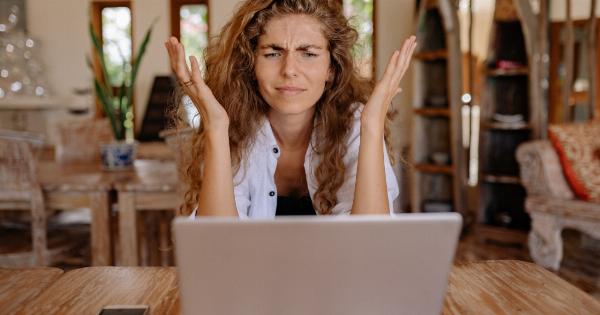Hemorrhoids, also known as piles, are swollen veins in the lower rectum and anus. They can cause discomfort, pain, bleeding, and itching. Hemorrhoids can be internal, external, or both.
Many people suffer from hemorrhoids at some point in their lives, but it’s not a topic that people like to talk about.
Types of Hemorrhoids
There are two main types of hemorrhoids:.
Internal Hemorrhoids
Internal hemorrhoids are located inside the anus, and they’re typically painless. The most common symptom of internal hemorrhoids is bleeding during bowel movements.
External Hemorrhoids
External hemorrhoids are located under the skin around the anus. They can be very painful and itchy, and they can bleed.
Causes of Hemorrhoids
The exact cause of hemorrhoids is unknown, but there are several factors that can increase your risk of developing them:.
- Straining during bowel movements
- Chronic constipation or diarrhea
- Pregnancy
- Aging
- Obesity
- Sitting or standing for long periods of time
- Family history
Hemorrhoid Symptoms
The symptoms of hemorrhoids can vary depending on the type.
Internal Hemorrhoids Symptoms
The most common symptom of internal hemorrhoids is bleeding during bowel movements. Other symptoms include:.
- Painless bleeding
- Prolapse (protrusion of hemorrhoid through the anus)
- Bright red blood in the toilet bowl, on the toilet paper, or on the stool

External Hemorrhoid Symptoms
The symptoms of external hemorrhoids include:.
- Pain or discomfort
- Itching or irritation
- Swelling around the anus
- Bleeding

Hemorrhoid Diagnosis
If you think you have hemorrhoids, you should see a doctor. Your doctor will perform a physical exam and may request additional tests such as:.
- Anoscopy, a procedure to look inside the anus and rectum
- Sigmoidoscopy, a procedure to look inside the sigmoid colon
- Colonoscopy, a procedure to look inside the entire colon
Hemorrhoid Treatment
There are several treatment options for hemorrhoids:.
- Home remedies such as warm baths, ice packs, and over-the-counter creams and ointments
- Minimally invasive procedures such as rubber band ligation or sclerotherapy
- Surgical procedures such as hemorrhoidectomy

Preventing Hemorrhoids
There are several things you can do to prevent hemorrhoids:.
- Drink plenty of water
- Eat a high-fiber diet
- Avoid straining during bowel movements
- Exercise regularly
- Avoid sitting or standing for long periods of time
Conclusion
If you think you have hemorrhoids, it’s important to see a doctor. While hemorrhoids can be uncomfortable and painful, there are many treatment options available.
By following proper prevention techniques, you can reduce your risk of developing hemorrhoids.

























